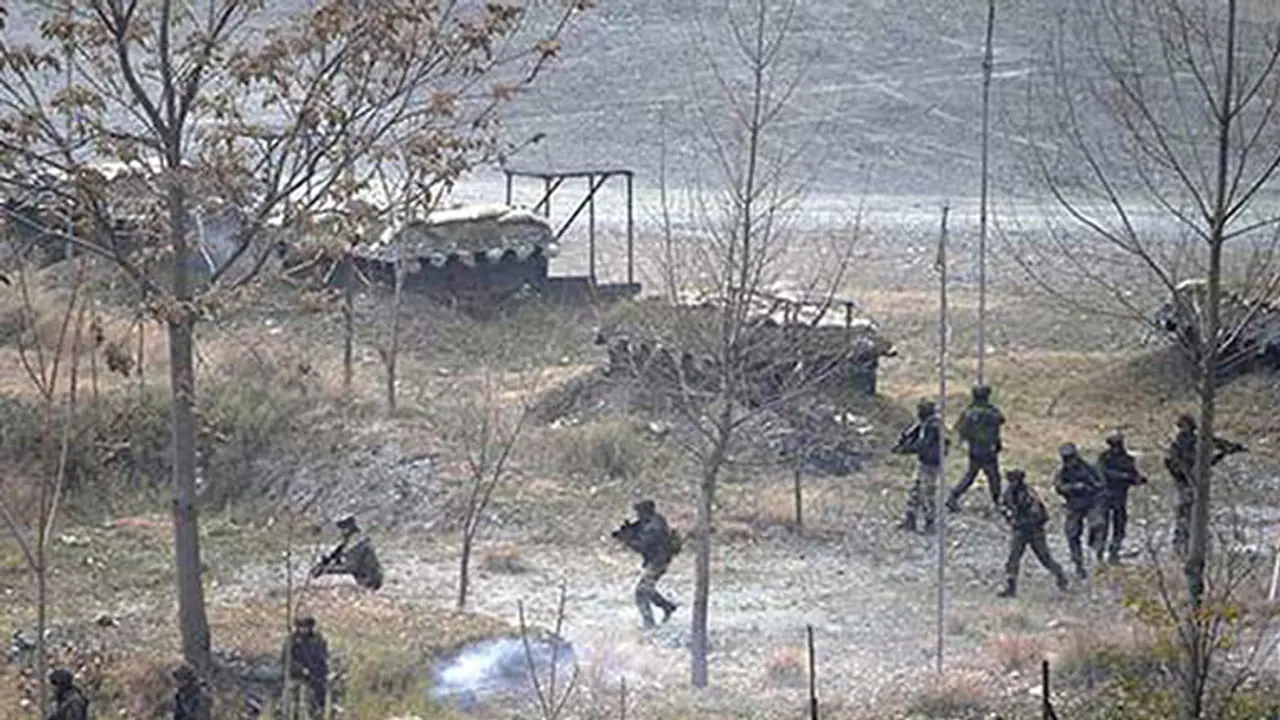New Delhi's post-Uri plans have to factor in Pakistan's strategy so far and draw lessons from past mistakes.Since the 1990s, the ISI, in tandem with the Pakistan Army, has worked on creating a conveyor belt of fidayeen willing to fight Pakistan's proxy war.

To be able to raise this forward line, the non-state actors need meticulous planning and Pakistan's ISI has outsmarted India in this regard. The RAW has simply not been able to match up, to pay Pakistan in kind.
India has sought to run to Washington every time Pakistan ups the ante across the LoC, but Islamabad does not quite care. With China as a powerful counterbalance to the US, India is getting boxed in on both sides of Kashmir. Even with American and possibly Russian support, Pakistan and China together are giving it a migraine.
All India has succeeded in doing so far is getting the world to nod to its assertion that Pakistan exports terror. But it has made zilch difference on the ground. India calling off talks at any level makes no difference to Pakistan. Islamabad got away with humiliating Rajnath Singh, and New Delhi could do nothing more than issue a statement in Parliament.
India has long tried to de-hyphenate itself from Pakistan arguing that while it is an economic power, Pakistan is a failed state. Indeed. But Kashmir ensures it stays hyphenated. China ensured Pakistan was linked to India during the government's audacious bid to enter the NSG. 'No Pakistan, then no India' line taken by Beijing was not music to New Delhi's ears.
New Delhi has not helped its cause either. The amount of human rights violations India committed in the Valley through its pellet gun blindings led to international attention on Kashmir and Pakistan could not contain its glee.
This kind of a mistake is precisely what Rawalpindi, the Pakistan Army's headquarters, wanted. With this tactical error, India played into the enemy's hands. It strengthened Pakistan's theory that India is ruling Kashmir only with boots on the ground.
Jammu & Kashmir is in a political mess. Chief minister Mehbooba Mufti does not look like she is in control. The impression on the ground is as if Srinagar is remote controlled by New Delhi. The civilian leadership has to decide how it wants to deal with the Pro-Pakistani elements like Geelani on Kashmiri soil. Either engage with them or throw them out.
The Uri camp is extremely close to the LoC, just about 6 km on the south-west side. It had received specific intel alerts of a possible attack yet soldiers were like sitting ducks for the fidayeen. Who took the call to ignore the signals?
Far more worrisome is the possibility of a Pakistani mole in the Indian army. The Uri carnage happened during a changeover. The 10 Dogra Regiment was being replaced by 6 Bihar Regiment. Such movements are top secret. How did the intruders know the exact time and place of this changeover?
Pakistan wants India to retaliate. It thought it would post Mumbai 26/11, but the Manmohan Singh government was happy providing dossiers and ensuring Kasab gets a fair trial. It thought it would post Pathankot, but the Modi Sarkar invited the Pakistanis to inspect its base.
The Pakistan strategy is to drag India into an IPKF like misadventure (The Indian Peace Keeping Force was sent to Sri Lanka from 1987 to 1990). All-out military action against terror camps would be akin to fighting the LTTE in terrain more familiar to them than Indian soldiers. Moreover, conventional battle tactics are unlikely to succeed against guerrilla warfare as India realised in northern Sri Lanka in 1987.
India would do well not to get drawn into a military adventure. The costs will prove to be too high. Pakistan is a nuclear state, and one can be sure it is not Prime Minister Nawaz Sharif's finger on the N-button. Some Pakistani rogue would be more than happy to press it at the first possible opportunity.
The financial costs will be too high as well, and it makes little sense for India as a booming economy to get into a costly military engagement.
China may well open up a new front with India to help Pakistan. Can India afford to fight two wars at the same time? The attacks are being undertaken by non-state actors in Pakistan. Note that the Pakistan army is not in a state of war with India. If we attack, we would obviously be seen as the aggressor.
The only possible recourse then is to pay back Pakistan in kind. Activate the rebels within Pakistan to carry out India's bidding for a price. Only when Pakistan witnesses unrest in the form of terror attacks against sensitive installations, will it be forced to take a relook at its India policy.
One can conclude with a fair degree of uncertainty that the present attack is also a way of telling Modi to back off on Balochistan. It means it is a ploy that has rattled Islamabad.
The need then is to move from first gear position of offering political asylum and support to the Baloch leadership to more aggressive posturing on Pakistan's troubled province. Apart from encouraging visible unrest on the ground in Balochistan, India needs to use its soft power to internationalise Balochistan as much as possible.
It is time now to call the 'Aman ki Asha' crowd out and demand answers on what tangible results have been achieved. Does Pakistan civil society care to mount pressure on its Army and civilian establishment not to indulge in such adventures across the LoC? No. Then what use is this people-to-people contact worth anyway?
BJP general secretary Ram Madhav spoke of taking out the entire jaw for one tooth. Flashy as it sounds, India has heard such 56-inch Bollywood-style lines for long now. What is needed is a quasi-political-military-RAW undercover operation. Stealth is key. Pakistan has to be paid back in the same coin.
